Are your AI initiatives delivering measurable ROI in cost savings, faster time-to-market, and customer loyalty or are they still stuck in pilot mode?
With the steadily increasing popularity in enterprise AI agents, there has been a significant shift from simple chatbots to advanced & autonomous systems used to transform business operations. This tremendous evolution is achieved due to the advancements in the Learning Language Models (LLMs) and Agentic AI.
Table of Contents
- AI Agents’ Market Growth and Strategic Drivers
- Evolution from Chatbots to Autonomous Agents
- How AI in Customer Support Provides Real-Time Personalization
- Integration Of AI Powered Customer Support for Seamless Experience
- Case Studies: Customer Support Transformation
- Challenges to Enterprise Adoption
- Governance, Security & Responsible AI
- AI-based Customer Support: Future Outlook
- FAQs
This resulted in AI becoming a pivotal element in handling intricate tasks, orchestrating workflows, and even assisting in making decisions or making them directly.
The market is experiencing rapid growth, with projections reaching billions of dollars, as businesses recognize the strategic advantage of integrating enterprise AI agents for increased efficiency, customer satisfaction, and a competitive edge.
AI Agents’ Market Growth and Strategic Drivers
The market for AI agents is projected to grow from $7.63 billion in 2025 to $50.31 billion by 2030, according to market analysis reports.
AI agents are no longer optional; they are becoming a core component of digital transformation strategies for staying competitive.
Over 88% of enterprises are allocating budgets to test and build enterprise AI agents, with many already scaling up their implementations according to Nasscom.
Evolution from Chatbots to Autonomous Agents
Enterprise AI agents can handle complete workflows through multiple systems without any need for human intervention. They are incorporating memory capabilities, allowing them to retain context from past interactions while offering more personalized and efficient services over time.
Examples of AI agent applications
-
Customer Service: Enterprise AI agents handle a large percentage of customer inquiries, resolve their issues, and even initiate proactive support.
-
Logistics: AI agents enhance delivery routes, manage inventories, and predict potential disruptions.
-
Human Resources: AI agents automate recruitment processes, handle employee onboarding, and provide HR support.
-
Fraud detection: AI-driven security agents detect and prevent fraud, assess risk, and ensure regulatory compliance.
How AI in Customer Support Provides Real-Time Personalization
In 2025, customer expectations have gone beyond the traditional support models. Customers no longer wish for reactive assistance. They expect brands to understand their needs and respond accordingly.
This is where enterprise AI for real-time customer support redefines the game.
They deliver real-time personalization that gives off an intuitive, human, and consistent vibe across every touchpoint.
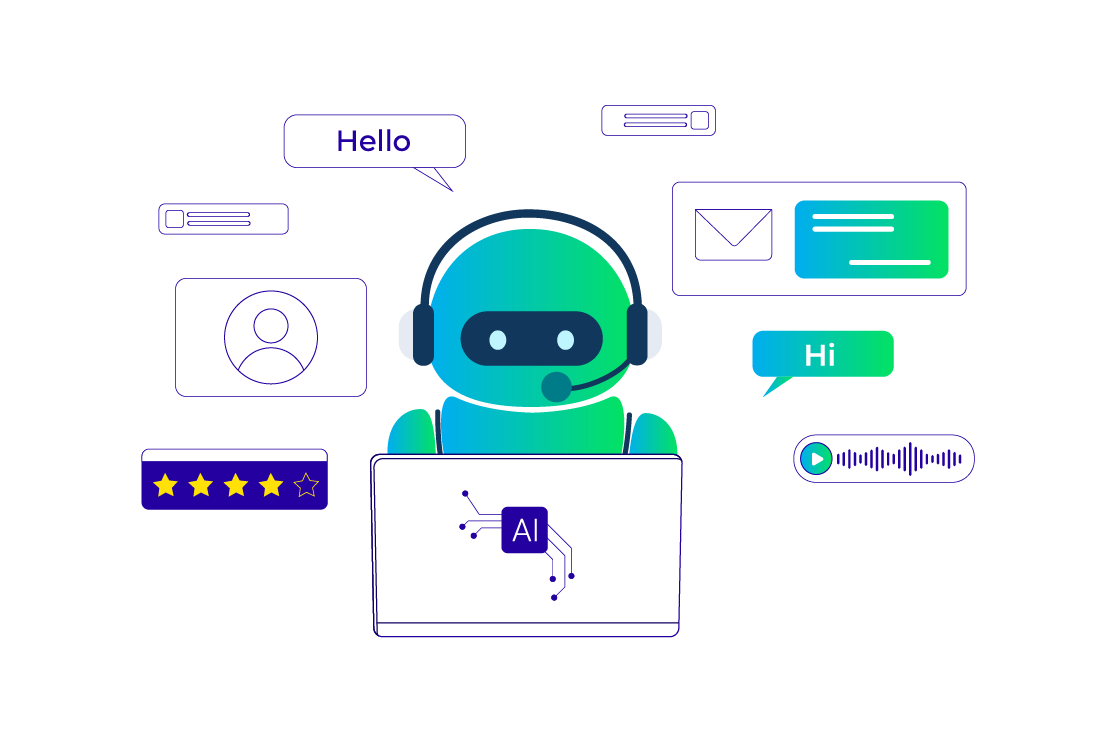
Emotional Empathy and Proactive Assistance
Today’s enterprise AI agents are designed with emotional intelligence. In other words, they can detect sentiment, tone, and frustration levels in real time to offer relevant responses.
Rather than waiting for a customer to escalate, AI agents take the next step offering relevant solutions.
For example:
The result?
Customers feel understood, valued, and supported 24/7. This goes beyond problem-solving; it creates a deeper emotional connection that drives loyalty and retention.
Integration Of AI Powered Customer Support for Seamless Experience
Modern customers move fluidly across platforms starting a query on a website or continuing over WhatsApp and finalizing the issue-resolution through human interaction. Without integration of AI, this becomes a fractured experience. Enterprise AI agents solve this by acting as a single intelligent layer across channels.
The AI for real-time customer support carries the customer’s context wherever they go—no need to repeat information.
For CXOs, this translates into reduced support costs, higher first-contact resolution rates, and stronger customer trust. It’s not just customer service—it’s a strategic advantage.
Recommended Reading:
Case Studies: Customer Support Transformation
The true power of AI agents lies in how they reshape customer journeys on a scale.
Across different industries, enterprises are already leveraging AI-driven agents to reduce costs, boost satisfaction, and unlock new revenue streams.
Retail: 20% conversions uplift – A global fashion retailer deployed AI agents to track customer preferences in real time. Instead of generic promotions, customers received hyper-personalized recommendations based on browsing history, past purchases, and current trends. The result? 20% uplift in online conversions and a 30% reduction in cart abandonment.
Banking & Financial Services: 12% fraud loss reduction, +15 NPS – One large bank rolled out AI agents across its digital channels for fraud detection and proactive financial advice. The initiative cut fraud-related losses by 12% while improving customer trust—measured through a 15-point jump in NPS (Net Promoter Score).
Healthcare: 25% satisfaction improvement – A healthcare provider deployed enterprise AI agents to handle healthcare related tasks such as scheduling, insurance queries, and pre-diagnosis triage. This freed up staff time, reduced appointment delays, and led to a 25% improvement in patient satisfaction, alongside measurable savings in operational overhead.
For CXOs, it’s a clear takeaway: AI agents are no longer pilots or experimenters; they are delivering enterprise-grade ROI across industries. Companies that strategically implement them are not only enhancing customer support but also revealing new growth levels.
Challenges to Enterprise Adoption
While the promise of enterprise AI agents is undeniable, many enterprises find that scaling adoption is less about technology and more about readiness, culture, and trust.
AI agents are only as effective as the data fueling them. Yet, 78% of enterprises struggle with fragmented, soiled, or poor-quality data. This creates serious obstacles such as data silos across departments prevent agents from having a unified customer view. Legacy system integration slows down AI deployment and leads to inconsistent customer experiences. And, on the top, incomplete data governance exposes enterprises to compliance and security risks.
Without addressing these foundations, enterprise AI agents risk delivering inaccurate responses, frustrating customers instead of delighting them.
For CXOs, the priority is investing in robust data pipelines, master data management, and system interoperability.
Governance, Security & Responsible AI
As enterprise AI agents gain autonomy in customer interactions, governance and security are no longer optional, they are mission critical. Enterprises that fail to address these risks expose themselves to regulatory penalties, reputational damage, and customer distrust.
AI agents introduce new classes of vulnerabilities that go beyond traditional cybersecurity. Here are two major things that CXOs need to take care of:
-
Prompt injection & data poisoning can manipulate AI responses.
-
Identity & access loopholes that may expose sensitive customer data.
To counter these, enterprises are turning into the defensive AI security and governance frameworks like:
-
ATFAA (Agent Threat Framework for Autonomous Agents) – mapping out potential attack vectors.
-
SHIELD methodologies – continuous monitoring and adaptive defense mechanisms.
-
Zero-trust architecture – ensuring every interaction is verified, authenticated, and logged.
For CXOs, the key is to embed AI security from design, not as an afterthought.
For many enterprises, the question isn’t “Can enterprise AI agents work?” It’s “Are they worth the investment?”
Measuring ROI requires moving beyond surface-level performance indicators and focusing on metrics that reflect trust, customer value, and business impact.
Traditional AI measurement often stops at accuracy.
But for AI agents transforming customer experience, CXOs must evaluate a wider set of KPIs:
-
Trust & transparency
-
Customer satisfaction (CSAT)
-
Efficiency gains
-
Adoption & retention
-
Compliance readiness
These metrics shift the lens from “Is the AI correct?” to “Is the AI delivering lasting business value?”
AI-based Customer Support: Future Outlook
The rise of enterprise AI agents marks a decisive shift in how organizations engage customers. From real-time personalization to autonomous problem-solving, AI agents are no longer just support tools—they are becoming strategic drivers of growth and loyalty.
For a CXO AI strategy, it’s clear that adopting enterprise AI agents is not about chasing trends, it’s about future-proofing customer experience. Success depends on getting the data foundation, governance, and ROI metrics right.
Enterprises like BluEnt understand the need to balance innovation with trust and compliance. Keeping this in mind, they provide state-of-the-art AI development & consulting services to help your business lead the market, while enhancing customer satisfaction.
FAQ – AI in Customer Support
How do AI agents differ from traditional chatbots?AI agents go beyond scripted responses—they autonomously learn, adapt, and take actions across systems, delivering real-time and context-aware customer interactions.
What industries benefit most from AI agents in customer support?Retail, banking, telecom, healthcare, and logistics are leading adopters—achieving gains in efficiency, personalization, and customer loyalty.
What challenges should enterprises prepare for?Data readiness, security, governance, integration with legacy systems, and organizational adoption remain top hurdles for large-scale deployment.
How can CXOs measure ROI from AI agents in customer support?Key metrics include reduced support costs, improved first-contact resolution, higher customer satisfaction scores, and revenue uplift from personalization.
How does governance ensure safe adoption?Governance frameworks mitigate risks like bias, data misuse, and compliance failures—ensuring responsible and trustworthy AI-driven experiences.











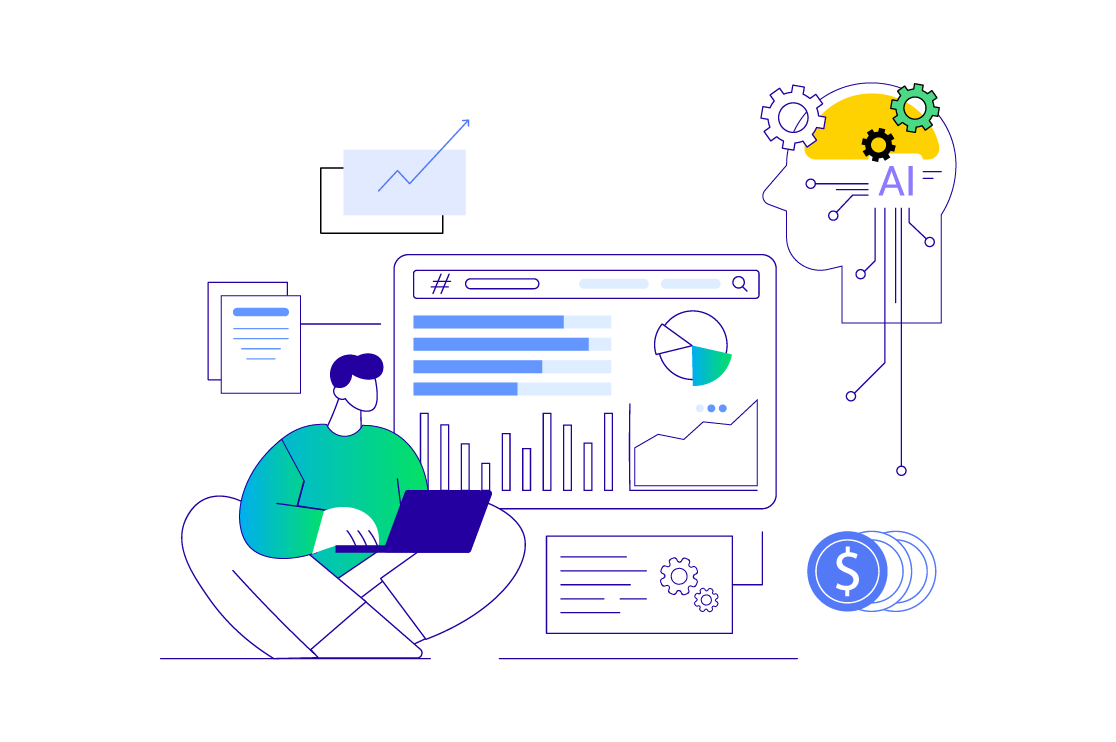
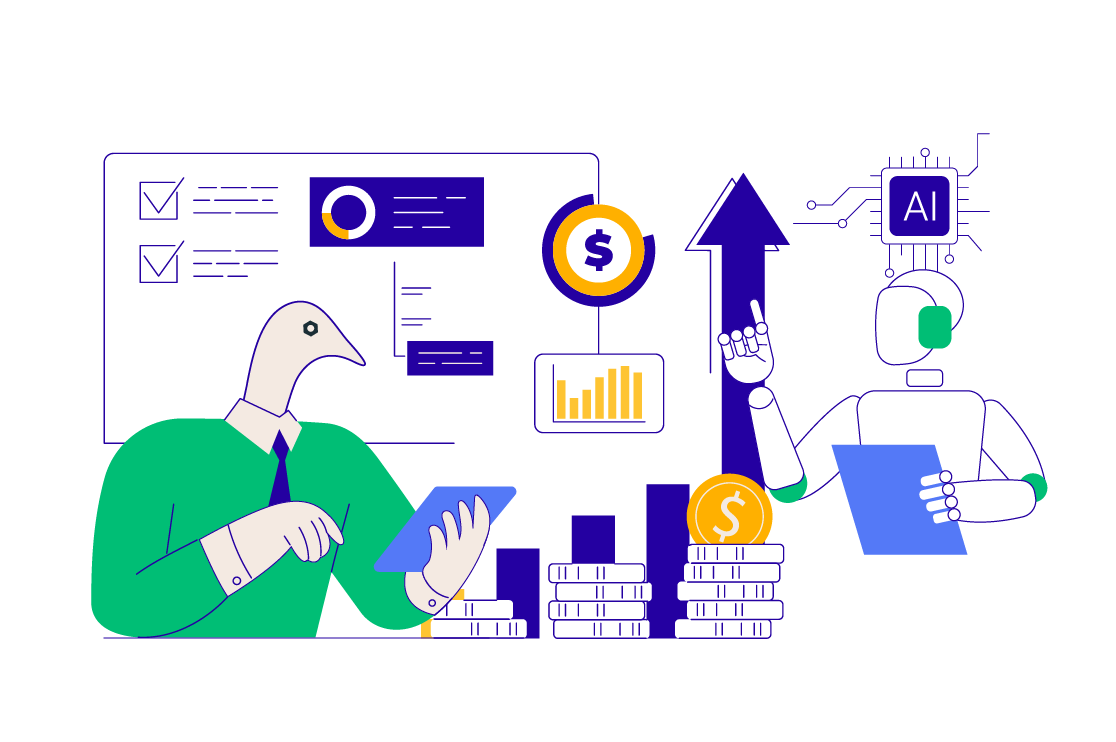 AI Algorithms for Business Decisions: How They Deliver Real Value & Growth for CXOs
AI Algorithms for Business Decisions: How They Deliver Real Value & Growth for CXOs 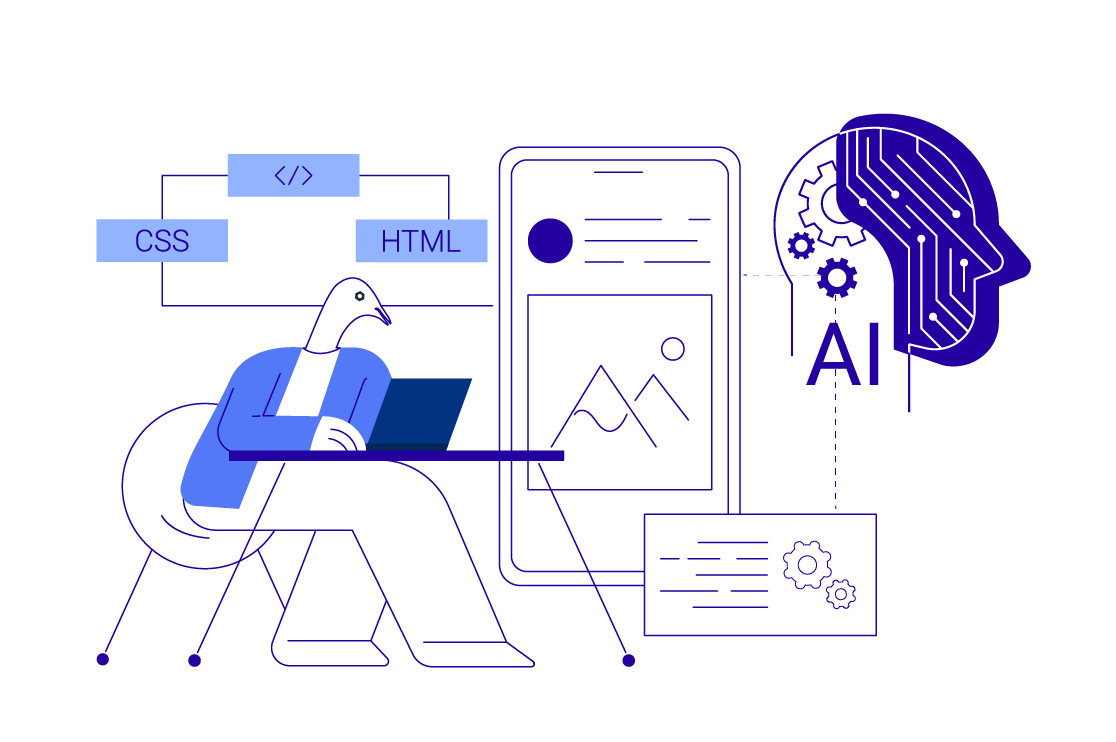 AI in Programming: Disruption, Evolution, and CXO Strategy
AI in Programming: Disruption, Evolution, and CXO Strategy 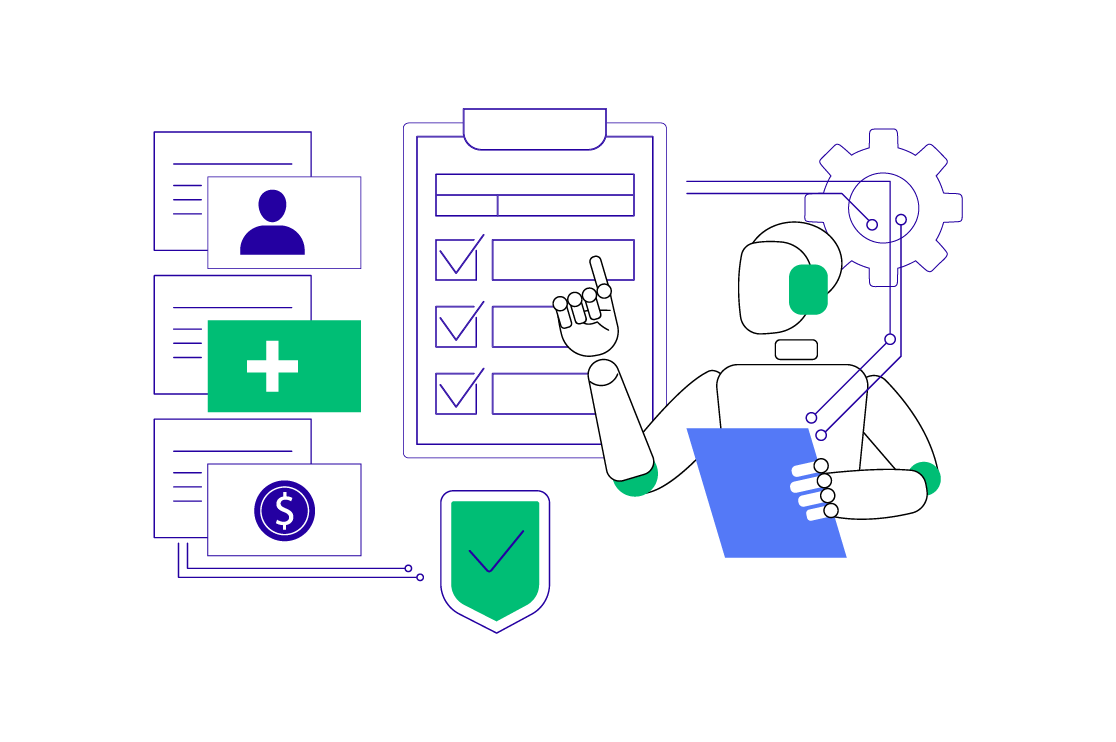 AI in Healthcare Administration: Cutting Costs & Boosting Efficiency
AI in Healthcare Administration: Cutting Costs & Boosting Efficiency 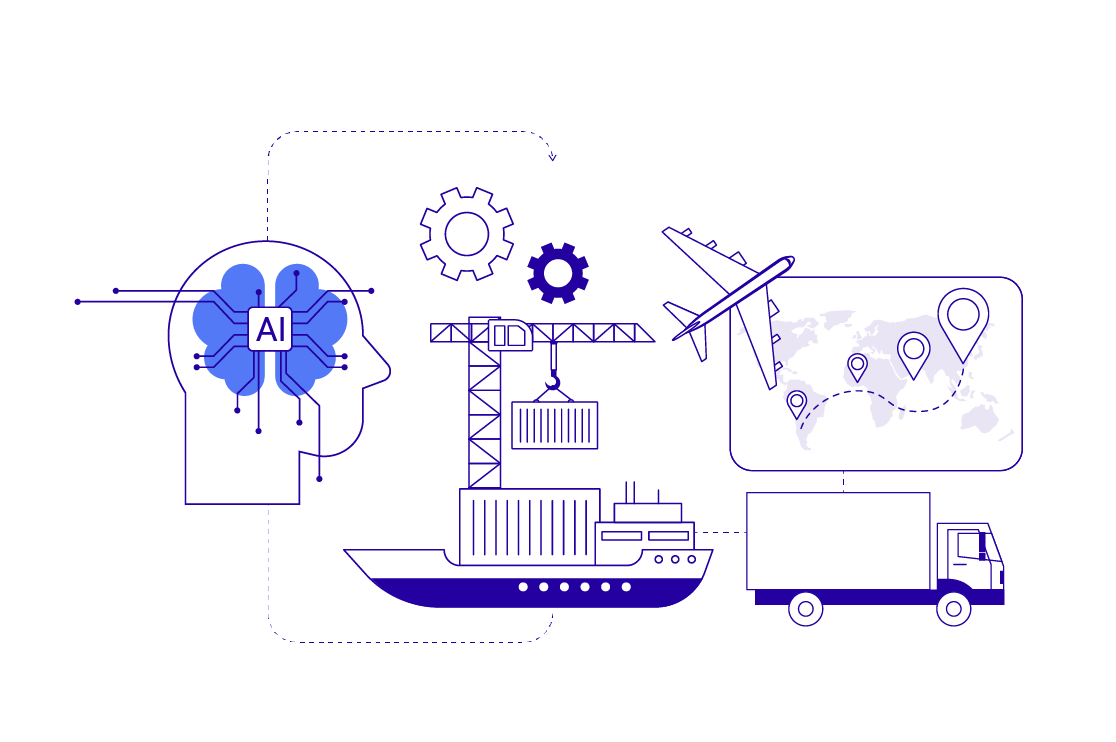 AI for Supply Chain Resilience & Optimization: Strategies for 2026 and Beyond
AI for Supply Chain Resilience & Optimization: Strategies for 2026 and Beyond 
